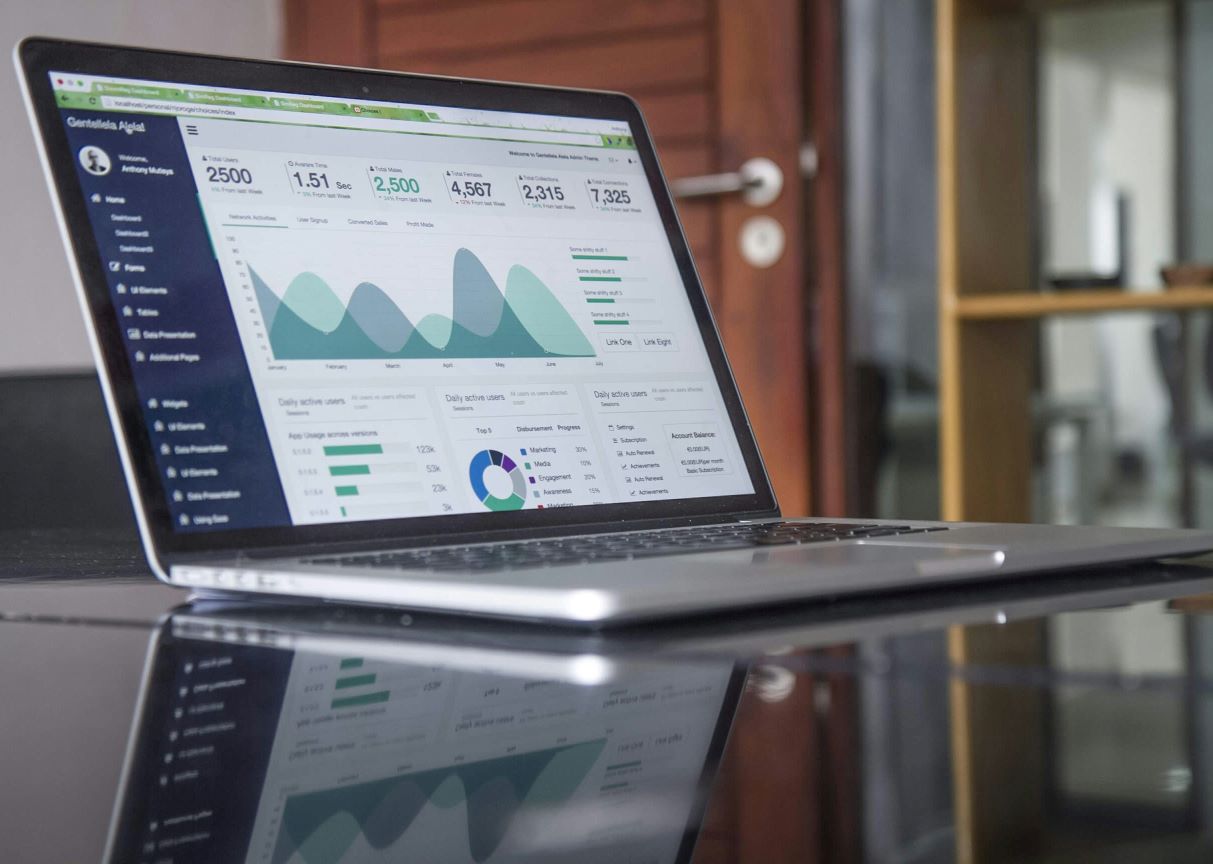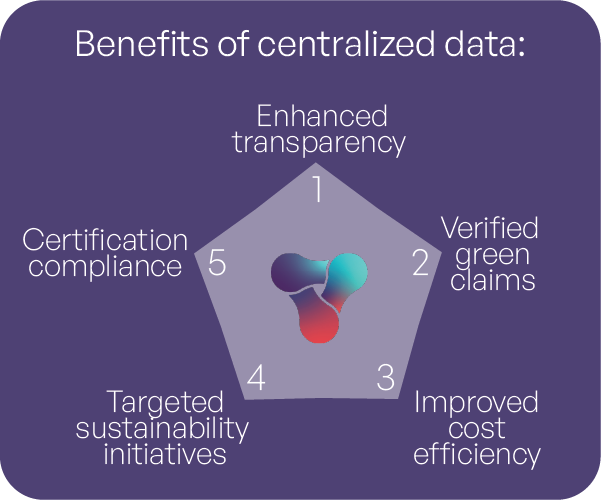How Hotels Can Capitalize on the Demand for Sustainable Stays by Centralizing their Sustainability Data Management



The growing demand of sustainable travel trends
With an alarming number of extreme weather events dominating the headlines over the past few years and major reports sounding the warning bells about global warming, the effects of climate change have become impossible to ignore. While governments are responding with more aggressive policies to curb carbon emissions, consumers are increasingly looking to corporations to play their part and do good for people and the planet. According to the 2023 Harvard Business Review, companies that invest sufficiently in sustainability will outperform those that do not, particularly among younger consumers. Additionally, a detailed 2024-2025 analysis from Harvard Business School and venture capital perspectives points toward a growing circular economy trend driven by consumer demand for sustainable, long-lasting, and repurposed products. This shift is seen as a substantial multi-trillion-dollar business opportunity, supported by sustainability-conscious Millennials and Gen Z consumers.
Travel is one major industry where consumers increasingly recognize the need to be more sustainable. In Booking.com’s 2022 Sustainable Travel Report, 71% of global travelers hoped to travel more sustainably in the upcoming year, marking a 10% increase from 2021. This trend has intensified significantly, with the 2025 report showing that 93% of global travelers now say they want to make more sustainable travel choices and have, to some extent, already done so.
For the first time, more than half of travelers (53%) report being conscious not only of environmental impacts but also of tourism’s effects on local communities.
Additionally, 73% of travelers want the money they spend to benefit local economies, and 69% want to leave the places they visit in better condition than when they arrived. Sustainable travel has transitioned from a niche concern to a mainstream priority, with many travelers incorporating daily conscious habits like turning off air conditioning when away from accommodations and visiting less crowded destinations to reduce overtourism.
This commitment is expected to pay significant dividends. The global demand for sustainable tourism is expected to exhibit a compound annual growth rate of 23.8% between now and 2034, with net revenue estimated to reach a value of nearly US$12,815,005 million (about $39,000 per person in the US) by the end of this period.
Why trust matters in sustainable hospitality
Topmost among these challenges is choice and trust. Though the availability of eco-accommodations is on the rise, identifying sustainable accommodations outside of this category is less obvious. How can you be sure the hotel you’ve booked for a weekend in London prioritizes sustainability and is not engaging in greenwashing activities? Furthermore, how can hotels in the same group maintain a consistent level of sustainability across different locations to ensure that guests are not disappointed from one booking to the next?
Overall, consumers tend not to trust brand sustainability claims, and that’s certainly the case in travel.
According to Booking.com's 2025 survey, consumer trust in sustainable travel remains mixed. Nearly 37% doubt the authenticity of accommodations’ sustainability claims, and about 48% find sustainable options too expensive, often associating them with luxury. However, 47% are attracted to accommodations with sustainability labels, and 69% believe all travel booking sites should use standardized certifications to boost transparency and trust. These results highlight ongoing challenges but also growing demand for credible, affordable, and clearly labeled sustainable travel options.
The message to companies is clear: to meet the demand for sustainable stays and ensure the trustworthiness of their claims, hospitality brands must be ready to prove that their actions towards the environment are genuine.
Recognized certifications from organizations, like Green Key or GreenSign, are the best way hotels can substantiate their green policies to the public. What those certifications mean must be clearly communicated via different booking partners using consistent terms. Laid out in this way, the mission seems rather straightforward, and yet anyone involved in quantifying, analyzing and communicating sustainability within the hotel space knows this is far from true. Let’s explore why.
We have a new tool, Certification Co-pilot, to simplify and streamline certification applications and management for hotel chains. Read more.
The role of centralized hotel sustainability data management
Establishing standardized reporting and certifications across the hospitality and travel industries is essential for scaling sustainability practices. Data is central to creating these standards, but the existing sustainability data management practices don’t allow it. Many hotels, even ones that are part of large hospitality groups, still collect and communicate their sustainability data manually—in other words, through email and spreadsheets. It’s a decentralized, time-consuming process prone to human error that results in inconsistent experiences across different properties. It’s also expensive.
According to our estimates, hotels spend nearly $8 million annually on sustainability reporting using these complex fragmented and manual approaches without much to show. And because each eco-certification standard asks for data based on its own parameters data can’t easily be re-used, creating a significant hurdle across the industry towards sustainability innovation and initiative expansion.
Data for booking platforms and online travel agencies
The challenges are similar for booking partners like online travel agencies (OTAs). To communicate a hotel’s sustainability credentials to its customers, OTAs often receive an exported list of hotels via a spreadsheet from the different certifiers and then must manually (and individually) match them to hotels in their database before being able to create a category for sustainability within their booking channels. As a result, it’s near impossible for OTAs to process information in real-time, fueling consumer skepticism about the validity of a travel provider’s sustainability claims and discouraging some platforms from including sustainability as a search parameter.
In this digital age, no hotel or booking partner should manually manage its sustainability data. This practice causes them to miss out on revenue from the growing eco-conscious traveler market and puts them at serious risk of not meeting sustainability reporting and compliance requirements. Governments worldwide, such as the European Union, have begun implementing these standards for all businesses operating within their borders.
Removing the obstacles for eco-friendly accommodation to implement data management
If siloed and outdated practices are the problem, combining a hotel’s sustainability data and data requirements from eco-certifiers and government regulators into a centralized, interconnected database is the modern-day answer. While sustainability data management software has existed for many years, no system has ever addressed hotels' specific needs.
With the introduction of the BeCause sustainability data management hub, hotels and the broader travel industry now have a streamlined way to handle sustainability data. This hub acts as an intermediary, efficiently funneling data between all relevant parties within and outside the organization. But what does this mean in practical terms?
Why does centralized data management matters for hotels?
Individual hotels, large chains, booking engines, industry organizations, and eco-standards certifiers can be on the BeCause platform. For instance, the Sustainable Hotel Alliance and World Travel and Tourism Council have made their frameworks (HCMI and HWMI) for calculating and evaluating a hotel’s sustainability impact available on BeCause.
Today, hotels can use those tools directly within the hub. They can map their existing and new data to these frameworks automatically, easily allowing them to identify gaps or missed opportunities in their sustainability data collection. The same idea applies to certifications or government regulations like the EU’s Corporate Sustainability Reporting Directive—those frameworks already exist in BeCause, and thanks to the magic of machine learning and artificial intelligence, hotels can upcycle their data to different standards at the press of a button.
Key benefits of centralizing sustainability data in hotels
This streamlined process matters as it means hotels can be more ambitious and apply for more certifications without doing more work. At the corporate level, it can help hotel sustainability managers see which individual properties are falling behind so they can offer their support. Booking platforms plugged into the BeCause platform can also automatically update their database of sustainable hotels on a rolling basis, offering their customers a broader, more extensive selection of sustainable accommodations with verifiable and easily explained eco-labeling at almost every price point. For example, hotels can use the ESRS framework to collect the necessary data and comply with CSRD requirements.
Aside from the revenue gains, investing in a more automated, centralized, and intuitive sustainability data management system like BeCause will help hotels save on operational costs, meet compliance and reporting obligations despite increasing regulations, and gain an undeniable competitive advantage.
Most importantly, these actions enable more responsible tourism by providing travelers with trustworthy, sustainable choices and ensuring their travel experiences positively contribute to the environment and local communities.

FAQs about sustainability data management in hotels
1. What types of sustainability data should hotels collect?
Hotels should collect data on energy consumption, water usage, waste generation, carbon emissions, supplier sustainability practices, and guest engagement with sustainability initiatives, to start. Thereafter you can expand to include community outreach, local employment, staff wellness and many more.
2. How can hotels ensure the accuracy and quality of their sustainability data?
Effective data management involves automating data collection through smart meters and IoT devices, integrating data sources into a central platform, and regularly auditing and benchmarking data to maintain reliability and audit readiness. Third-party verification and certification also help ensure data credibility.
3. What are the benefits of using a sustainability data management system in hotels?
Such systems streamline data collection, enable real-time insights, reduce manual effort, support compliance with regulations and certifications, and help hotels make informed decisions to improve sustainability performance while gaining competitive advantage.
4. How can hotels use sustainability data to improve their operations?
By analyzing data, hotels can identify inefficiencies, set reduction targets, and prioritize investments in energy-saving technologies, water conservation, and waste reduction. Data-driven management also supports transparent reporting to stakeholders and aligns with guests' growing demand for credible sustainable practices.
5. What challenges do hotels face in managing sustainability data, and how can they be overcome?
Challenges include lack of standardized data formats, managing data across multiple departments, and balancing data complexity with usability. Solutions include adopting centralized data platforms, automating mapping of sustainability requirements, setting clear reporting calendars, and using globally recognized sustainability frameworks and certifications to guide efforts.


